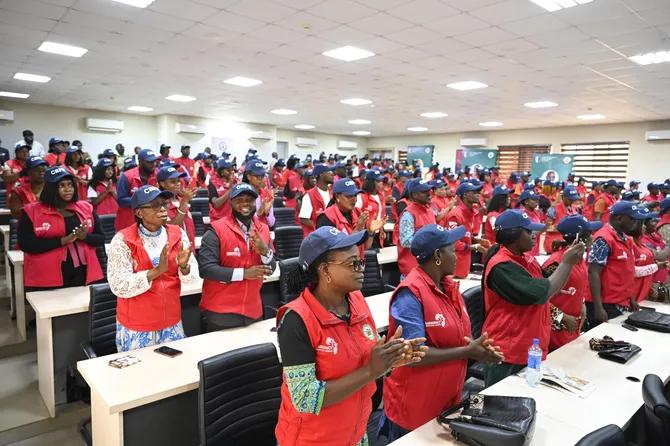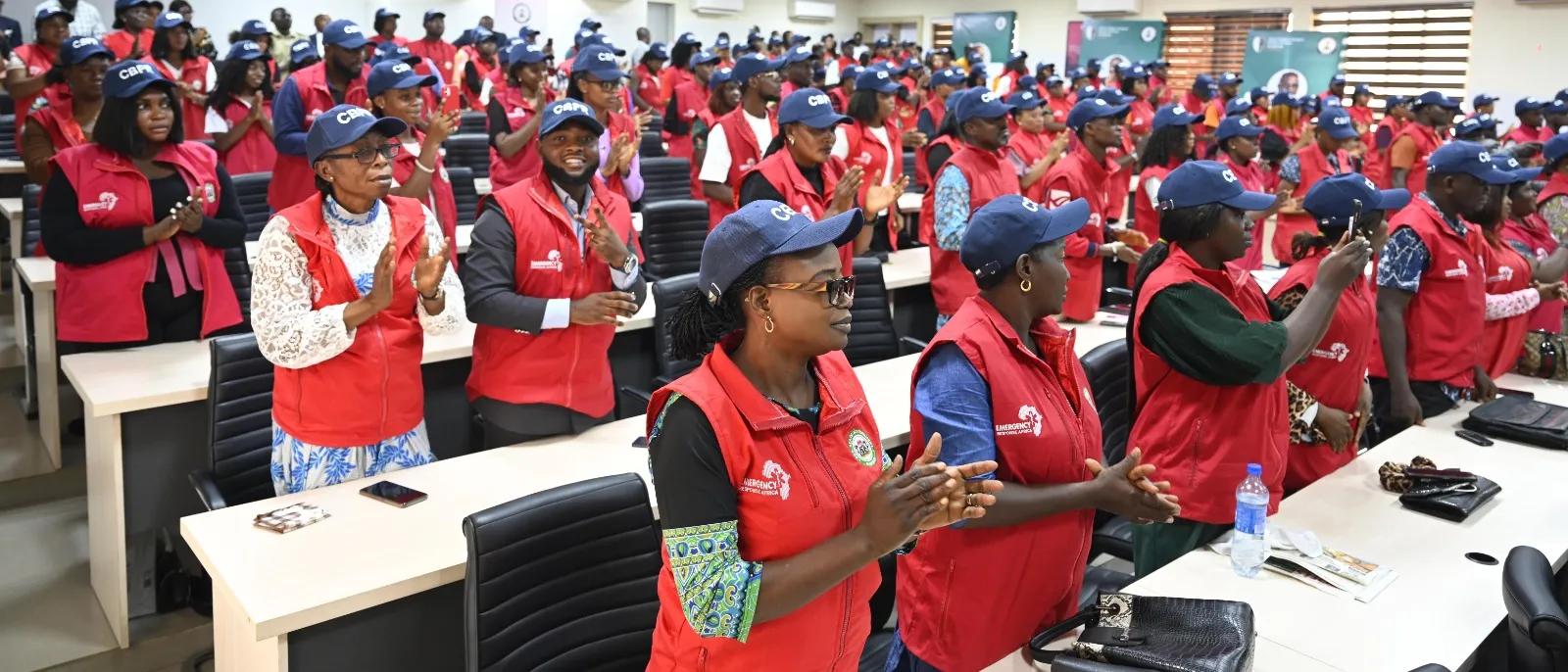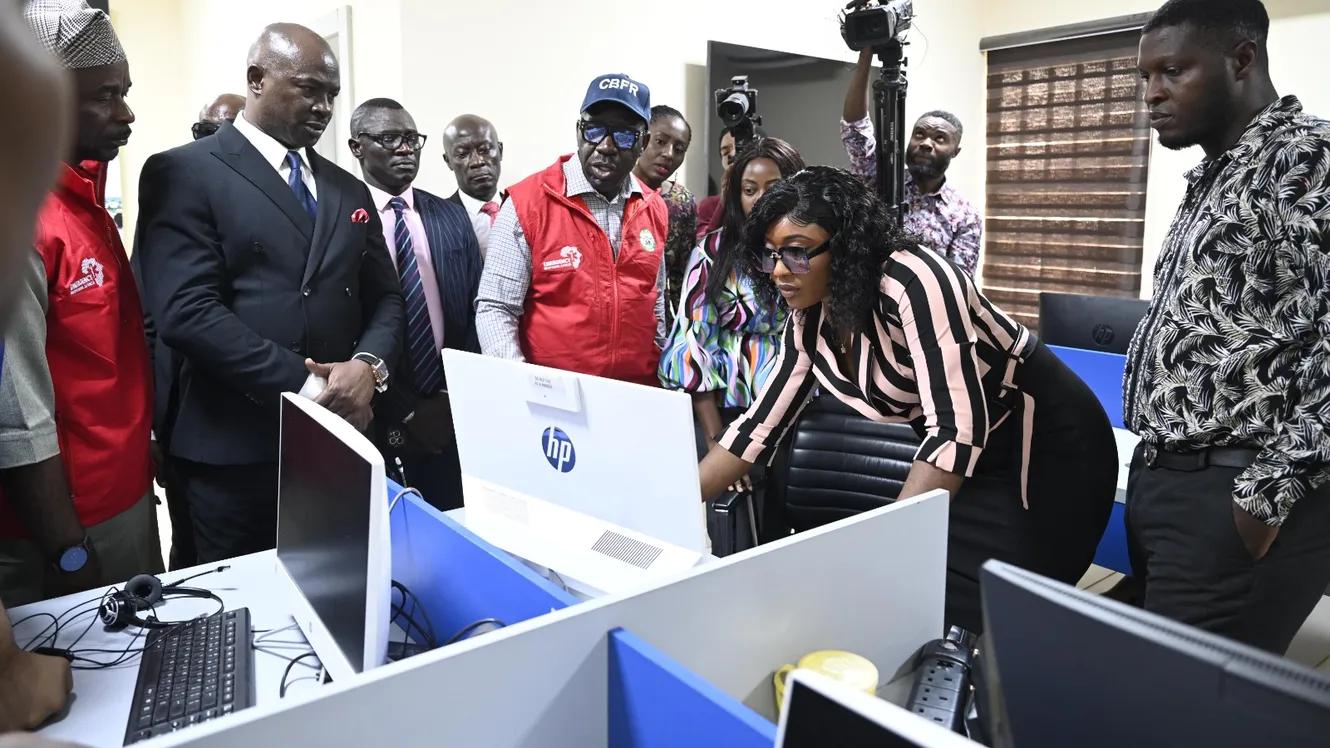
Projects funded by FID
16 février 2026
Impact
News and Insights
03 April 2024
Projects funded by FID
Nigeria
Health


Pre-hospital emergency care involves the initial medical assistance provided in a crisis situation. The approach and resources deployed vary from country to country. On the occasion of World Health Day, Folake Owodunni, co-founder and CEO of the Nigerian company Emergency Response Africa, discusses the challenges surrounding emergency care in Nigeria and presents the emergency response system developed by ERA that mobilizes community agents, a pilot project funded by FID.
Emergency care is often overlooked in healthcare discussions, yet it plays a critical role in saving lives and reducing the burden on healthcare systems. In Nigeria, the country bears the burden of 1.2 million preventable deaths, attributable to key contributors like cardiovascular diseases, road accidents and injuries, and maternal and infant conditions. However, only a small fraction of the population enjoys the coverage of a formal Emergency Medical Services (EMS) system. Governments face challenges in scaling ambulance services, leading to reliance on disconnected private hospital-owned ambulances that are expensive and experience delayed responses, often exceeding an hour.
Timely access to emergency medical care is essential for saving lives and preventing long-term disabilities. Without proper emergency response systems in place, individuals experiencing medical emergencies, such as heart attacks, strokes, accidents, or complications during childbirth, are at a higher risk of adverse outcomes. By prioritizing emergency care, we can mitigate these risks and improve the overall health and well-being of the population.
In addition to its direct impact on health outcomes, inadequate emergency care also has social and economic implications. Families may suffer emotional and financial hardships due to the loss of loved ones or the burden of caring for individuals with disabilities resulting from poorly managed medical emergencies. Moreover, preventable deaths and disabilities can hinder economic productivity and development. According to the NIH Fogarty International Centre, “_630 million years of healthy life are lost each year in Africa due to disease, taking an economic toll of more than 2.4 trillion international dollars_”. Improving access to emergency medical care will reduce the number of preventable deaths, and resultant economic burden, by 54% . Addressing emergency care is essential for reducing these social and economic burdens.
The project financed by FID is innovative for several reasons. Firstly, it leverages technology to optimize emergency response systems, enabling rapid dispatching of first responders and ambulances to medical emergencies. This tech-enabled approach ensures faster response times and the data collected will enable more efficient resource allocation, ultimately saving lives. Additionally, the project focuses on building partnerships with local communities by identifying and training members of the community as first responders and equipping them as the first line of defense for their people. Finally, the project works closely with government agencies such as the State Health Insurance Scheme to drive insurance enrollment and create a sustainable and scalable emergency response network. By combining cutting-edge technology with collaborative partnerships, the project sets a new standard for emergency care delivery in Nigeria.

In the medium term, we expect the pilot project to demonstrate significant improvements in community capacity to respond to emergencies, reduction in response times, and improvement in patient outcomes for specific healthcare conditions. We are training 170 community-based first responders and expect to respond to at least 5,000 emergency cases in the pilot period. By optimizing emergency response protocols, training first responders, and enhancing coordination between healthcare stakeholders, we anticipate a measurable reduction in preventable deaths and morbidity associated with medical emergencies.
We will also gain a clearer understanding of the costs associated with increasing access to emergency response, laying the foundation for a robust cost-effectiveness study in the long term. In the long term, we also aim to establish a robust and sustainable emergency response technology and operational infrastructure that serves as a model for other regions in Nigeria and beyond. This includes expanding the project's reach beyond the pilot area, integrating it into existing healthcare systems, and fostering a culture of emergency preparedness and response within communities. Ultimately, we envision a future where every African has access to timely and life-saving emergency medical care, thanks to the success of this pilot project funded by FID.
News
Discover the latest news from FID
Explore FID's news
Projects funded by FID
16 février 2026

Projects funded by FID
28 novembre 2025
Supporting men living with HIV in South Africa through a peer-led intervention

Publications and resources
27 novembre 2025